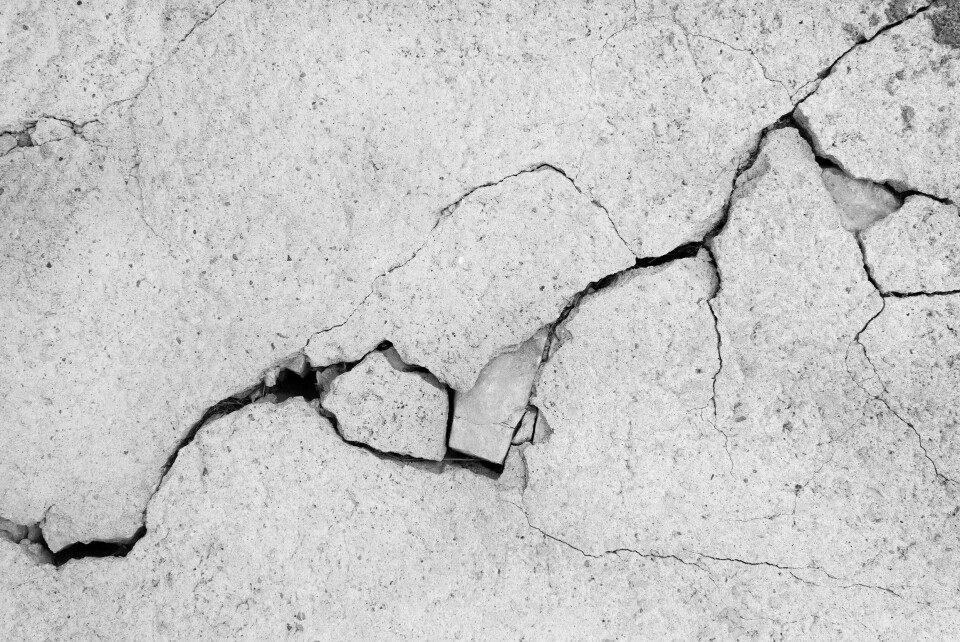-
Mutuelle fees set to increase in France next year: see by how much
New taxes on mutuelle companies denounced by insurance federation
-
Skiing in France: a mistake could cost you thousands
137,000 winter sports accidents were recorded during the 2023/2024 winter season
-
Why your home insurance in France is likely to increase
Climate change-related claims cost more than €5 billion last year
Shrink-swell heat damage probably a factor in fatal building collapse
Investigations are under way into incidents that caused a death in Lille; meanwhile homeowners are still waiting to claim on insurance after heatwaves last year

Recent heatwaves probably contributed to the collapse of two buildings in the centre of Lille last year, killing one person, a planning expert says.
One of the three-storey buildings had been evacuated after cracks were noticed in the wall. It is very likely that investigators will confirm that ‘shrink-swell’ had an impact, said Marc Dumont, a town planning expert from Lille university.
This refers to the way clay soil contracts during droughts, then expands after rainfall, putting pressure on buildings.
Detached houses are most affected by shrink-swell, with as many as 10 million homes across the country highlighted as at risk of this to some degree.
Dr Dumont said the incident in Lille led to some social housing providers in the area running checks on their buildings.
He believes a soil analysis programme across the country is needed to update our knowledge of the risks.
“The most important question is whether to universally impose structural checks on buildings of a certain age,” he said.
“There are lots of cases where houses have had to be more or less rebuilt because their foundations were so damaged.”
Much work remains to be done in this area, he said.
Understanding of urban climate change impact ‘just beginning
“Our understanding of the impact of climate change on urban areas and the weakening of buildings is just beginning.”
Lille was built on marshland, with a river once running through its centre.
Much of the city’s buildings rest on wooden stakes driven into the water to support the foundations.
“The last two summers have seen heatwaves. With the droughts, the water which is always present in the ground was removed, then returned [after rains],” said Dr Dumont.
“Wood is very good at withstanding humidity when it is permanently in water, as in Venice, but it struggles with humidity going away and then coming back. That weakens it.
“What’s certain is that the ground has moved a lot due to the alternation between extreme heat and rehydration.”
Insurance federation France Assureurs estimates the 2022 droughts will cost insurers €1.9billion to €2.8billion.
The record, since droughts were added to the ‘natural disaster’ insurance regime in 1989, was €2.1billion in 2003.
Read more: Vehicles, homes: claiming compensation for weather damage in France
20 people seeking help each week
Hélène Niktas, of the association Les Oublies De La Canicule, which guides victims through drought insurance claims, said at least 20 people had been getting in touch each week following the 2022 heatwaves.
Most of their homes had pre-existing drought damage.
“Many of them are worried because their previous insurance claims were rejected, and following the 2022 drought, their homes have moved again.
“There are also people who had repairs done but not done well, just stapling the cracks, and their houses moved again.”
For homeowners to claim for repairs, their town or village must first be declared a catastrophe naturelle (natural disaster) zone by the state.
The natural disaster decrees are unlikely to be issued before April, which is when Météo France publishes its annual report, Ms Niktas added.
That is why, she said, most of those who noticed new cracks from 2022 are yet to get in touch with the association.
“People have the impression that once they get recognition of a natural disaster, their insurance will automatically pay, which is false.”
Hence, the work of Les Oubliés de la canicule association to help people claim effectively
Related articles
€900,000 for French home owners whose house was built on polluted land
Rising sea levels provoke exodus from northern French coastline
Dordogne town battered by hail is left in limbo by French insurers
























